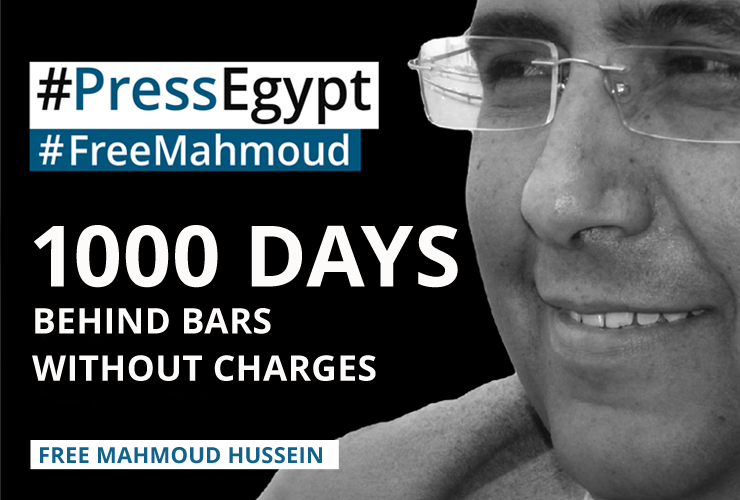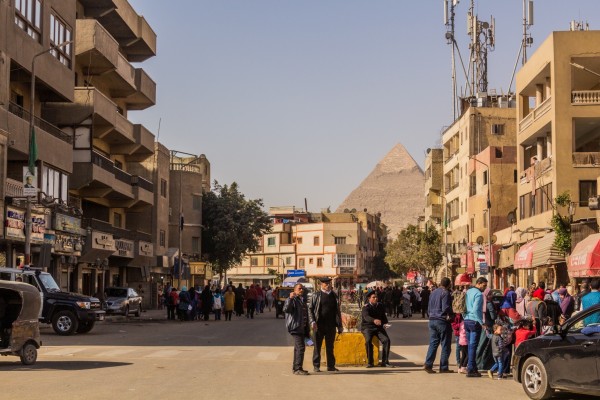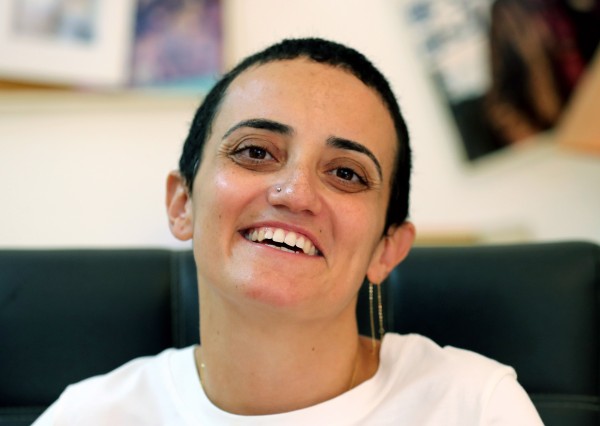No formal charges. No trial. No conviction. Yet this Monday, September 16, jailed Al Jazeera journalist and International Press Institute (IPI) member Mahmoud Hussein will complete 1,000 days behind bars in Egypt.
The Qatar-based Egyptian national is among three dozen journalists arbitrarily detained by the government of President Abdel Fatah al-Sisi, whose country is among the world’s biggest prisons for journalists.
For over two-and-a-half years now, Hussein’s detention in Cairo’s notorious Tora prison has been repeatedly and illegally extended by the government, which has accused him of broadcasting “fake news” and “defaming” state institutions.
As no charges were ever formally brought against him, his pre-trial detention period is now in violation of the 730 days permitted under the Egyptian penal code, and in clear breach of international law.
During his time in jail, Hussein has been held for long periods in solitary confinement, forced to share cells with convicted murderers, and systematically denied his legal rights. Hussein was denied proper medical treatment in prison when he broke his arm in 2017.
His family and colleagues say he is suffering both physically and psychologically and has had to wait long periods for medical treatment. He has also been subjected to a smear campaign in Egyptian media portraying him as a foreign spy and a terrorist.
The U.N. Working Group on Arbitrary Detention concluded in January 2018 that the conditions of his imprisonment amounted to “cruel, inhuman and degrading treatment”.
IPI has repeatedly called on the government of al-Sisi to respect international law and basic human rights and release Hussein. The African Commission on Human and People’s Rights has also raised the issue of Hussein’s imprisonment with the Egyptian government.
“Mahmoud Hussein should never have spent a single day behind bars, let alone 1000”, IPI Director of Advocacy Ravi R. Prasad said. “The repeated extension of his already illegal imprisonment is a stain on the record of the al-Sisi government. We demand his immediate and unconditional release, so that he can be reunited with his family and return to his profession.”
“Until Hussein and other journalists like him held under similarly farcical and unjust pretences are released, the Egyptian regime will continue to be considered one of the worst abusers of human rights in the world.”
Detention extended arbitrarily more than a dozen times
Hussein, a father of nine, has over 30 years of experience working in Egyptian broadcasters and Arabic-language news channels.
After many years of freelance work with Al Jazeera, Hussein joined the company full time in 2010 as a Cairo correspondent, covering the 2011 revolution, the uprising against Hosni Mubarak, the election of Mohamed Morsi, and the latter’s eventual ousting by the military under the command of future president al-Sisi.
Hussein was originally arrested by Egyptian authorities upon his arrival in Cairo on a trip to visit family on December 20, 2016. He was interrogated for over 14 hours without a lawyer present, before being released and then arrested again days later.
Five days later, Egypt’s interior ministry publicly accused him of “disseminating false news and receiving monetary funds from foreign authorities in order to defame the state’s reputation”. Since then, Hussein’s detention has been extended more than a dozen times.
Most recently, in May this year a decision to release him under “precautionary measures” was controversially overturned at the last minute. An Egyptian court had granted Hussein’s release him under “precautionary measures” that would have freed him from jail, while retaining some restrictions on his movement.
In preparation for his imminent release, he was transferred from Cairo’s Tora prison to a holding cell in Giza, where his final clearance would be approved by the National Security Agency’s office.
However, in the middle of the proceedings, as his family waited outside to greet him, Hussein was suddenly transferred to the office of the prosecutor for state security and then sent back to jail. Authorities announced that a new investigation had been opened against him and he was taken back to Tora prison in the capital, with no other details or reason given for yet another extension of his detention.
ADDITIONAL BACKGROUND
• Read our press release calling for Mahmoud Hussein’s release
• Read our interview with Mahmoud Hussein’s daughter Aya (February 2018), containing additional biographical information on Mahmoud Hussein
• Video: Mahmoud Hussein’s daughter calls for his release (February 2018)
• IPI’s #PressEgypt campaign website



